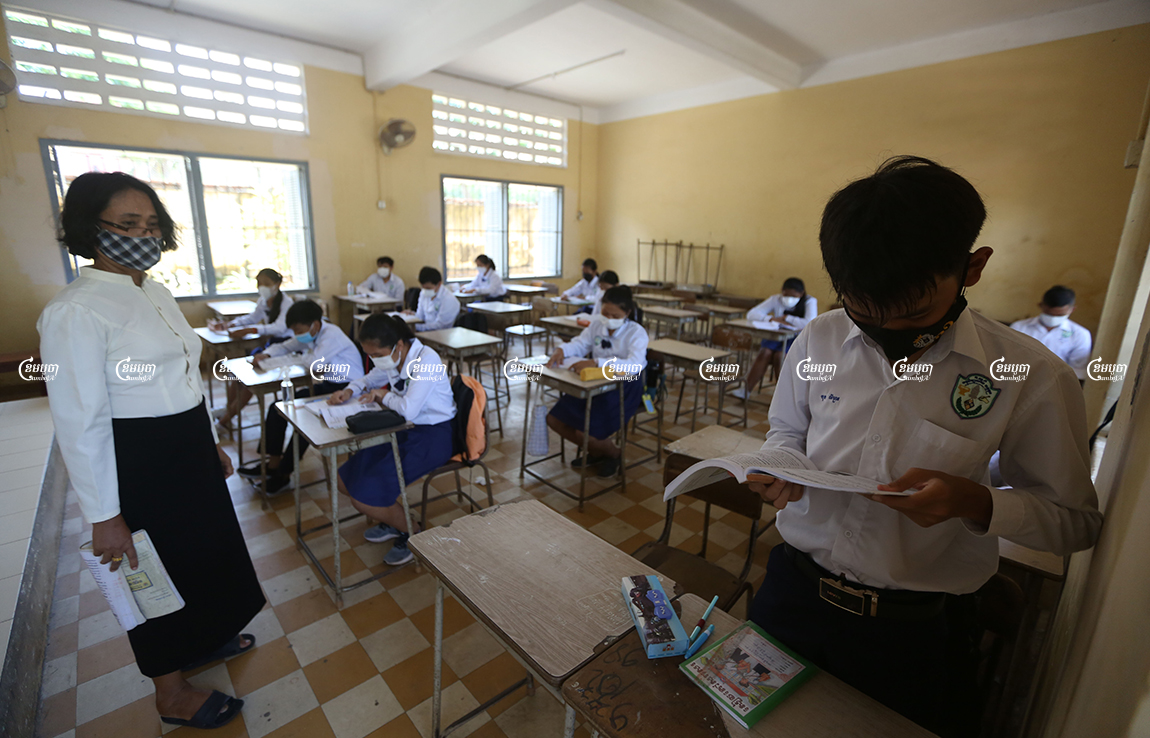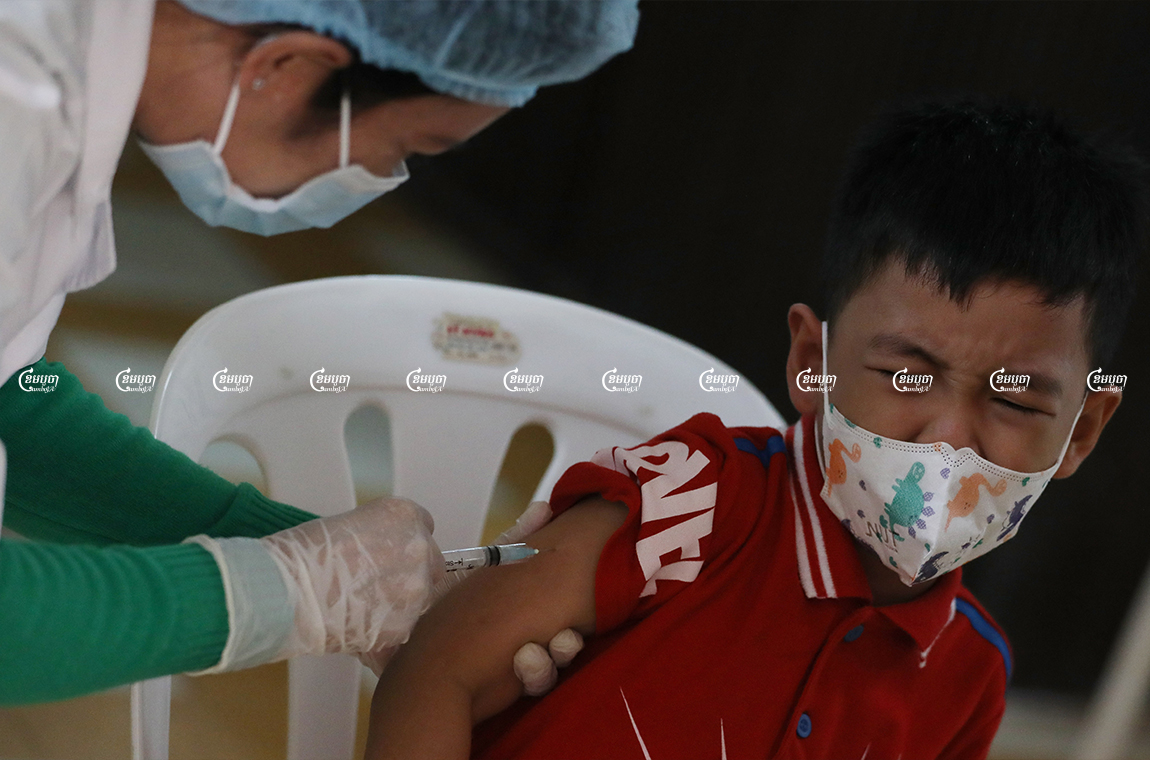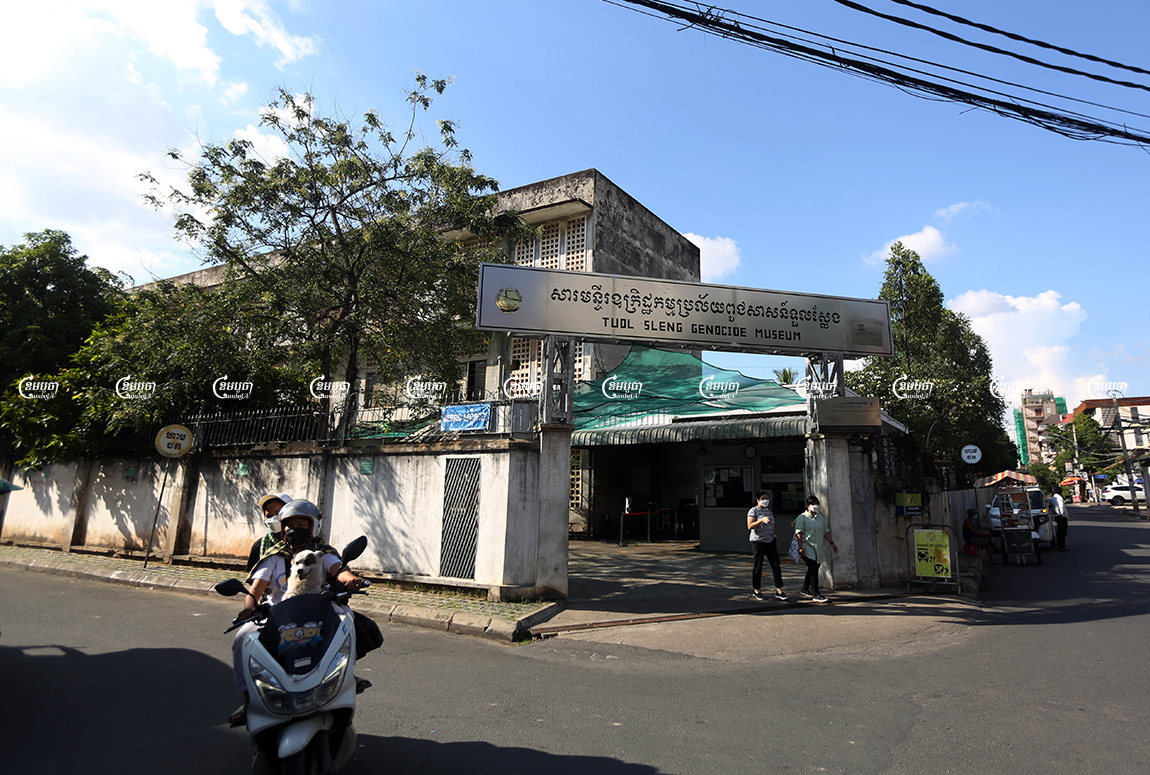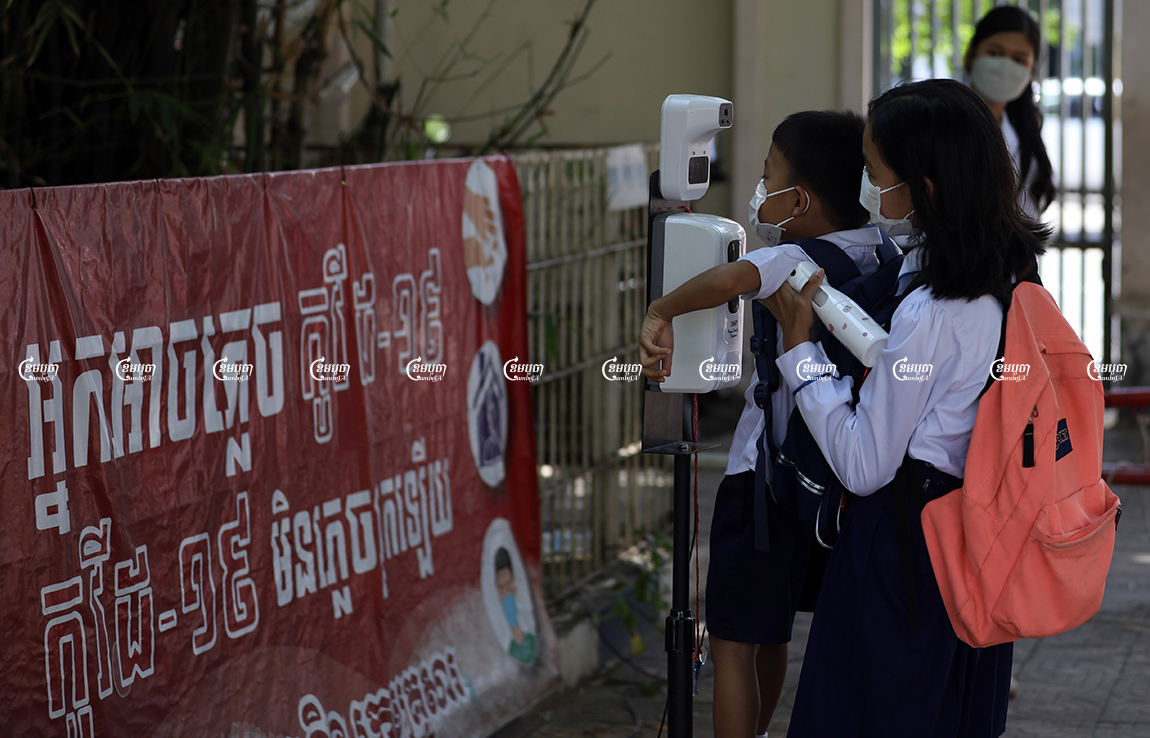Prime Minister Hun Sen announced Monday morning a “new normal” for Cambodia, including an official reopening of all economic sectors, though it remains to be seen how quickly the economy will rebound after struggling through nearly two years of COVID-19.
Speaking for more than four hours at the Peace Palace to mark the closing of a COVID-19 vaccination campaign for children aged six and up — as well as the start of inoculations for 5-year-olds — Hun Sen delivered a wide-ranging summary of the government’s measures during the pandemic. He also described steps to reopen the country taken in recent weeks and said enough people have been vaccinated to justify moving ahead with ending restrictions.
“[We] start to reopen a full country in all sectors and live with COVID as a new normal from November 1,” he said, encouraging domestic tourists to visit anywhere in the country.
However, despite the announced reopening, clubs, KTVs and other businesses deemed high-risk are to remain closed until told otherwise. Despite the announced end of a vaccination campaign, he added, inoculations are still being distributed to anyone who hasn’t yet received them.
About 13.7 million Cambodians of ages six and up have been vaccinated, Hun Sen said, or about 85% of the country’s population.

Primary through high schools are allowed to open November 1, and the prime minister confirmed that, starting from now, the government will promote only targeted measures in the event of new infections. That means if any students, vendors or factory workers test positive for COVID, their respective schools, markets and factories won’t be closed altogether.
Health interventions will focus only on quarantining infected individuals and contact tracing to find other immediate cases.
Though agriculture and manufacturing were able to continue operations for much of the pandemic, Hun Sen continued, tourism was deeply affected. The government took steps in previous weeks to reopen the country to international travelers and will continue to do so, the prime minister said.
In total, the government expended about $2.3 billion to address the pandemic in the past two years, the prime minister said. That included $821 million in 2020 and roughly $1.5 billion so far this year.
Hun Sen still ordered all levels of authorities to continue observing COVID-19 guidelines, cautioning that more than 1,100 patients are in intensive care units. Looking ahead, he said the government should continue distributing booster vaccinations and prepare a budget to deliver fourth doses of serum to maintain immunity among the population.

He added that the government is preparing to send vaccinations to Cambodian migrant workers in Thailand and will ask the Thai government to make use of Thai health workers for that process.
“Now, we require [migrant workers] who return to Cambodia to quarantine,” he said. “But for any migrant workers who have been vaccinated with two doses of vaccine already, they are required to be quarantined for only seven day. Any migrant workers who do not vaccinate yet, they must be quarantined for 14 days.”
Kun Kosal, 29, a sales executive with delivery company Foodpanda, said he was pleased with the news of a continued reopening.
“I am appreciative and always waiting for the reopening of all sectors for our country,” Kosal said. “It’ll help people who run a business, even those in delivery, café, restaurants and so on, to run it smoothly by just following the government’s instruction.”
The restrictions of nearly two years of pandemic conditions have affected everyone, he added, whether directly or not.
“It’s been almost two years of suffering already. We should live with COVID-19 because it’s hard to stop it, and people are used to wearing a mask and spraying alcohol, so it is a habit for them,” he said.
Mit Ten, 21, a food seller on a street in O’Bek Ka’am commune, said she’s also appreciative of the steps to reopening society.
“I was afraid of COVID-19 and even my customers are also afraid — when they come to buy our food, they spray alcohol — but these few weeks, I seem to be OK with it because of the high number of vaccinations and decreasing infections,” she said.
Though business hasn’t fully recovered for her, Ten said Monday morning was a strong day of business. The uptick gave her hope for better days.
“I hope everything will be back to normal and we are not worried like before. My business can generate more and more profit — like today, at only about 8 a.m., my food was out of stock,” she said.
She misses taking trips and said she plans to visit Angkor Wat with her friends next month if everything goes smoothly, both with her business and the COVID-19 situation.

Chan Theara, 34, operates another street café on Street 19 of the capital’s Daun Penh district. Theara said he is happy to see Cambodia reopen because his business can generate more profit as people feel free to move around.
“I hope after reopening, there will be an increase in my customers,” he said, explaining that his sales had already increased over the past month and he was hopeful they’d continue rising.
He hasn’t yet seen a resumption of sales to students, but is optimistic they’ll soon return, especially with schools reopening and the high rate of vaccination.
“Even I was injected for the third dose of AstraZeneca, so I’m more confident,” Theara said.
Hong Vanak, a business researcher with the Royal Academy of Cambodia, told CamboJA it’s good news for Cambodian people to resume normal business after being stuck for nearly two years. Vanak said the ongoing reopening has been planned by the government since the Pchum Ben holidays.
“It’s a successful vaccination strategy of the government to control COVID-19 and [cause] regional decreases for infection, so it’s the right time to reopen the country for all sectors,” he said.
“COVID-19 has impacted our economy for almost two years, and reopening the country is really a big contribution for businesses and even families,” Vanak continued.
On Monday, the Ministry of Health reported 91 new cases of COVID-19, including 16 imported cases. This brought the total count to 118,613, with 19,641 imported cases since the pandemic began in early 2020.
The large majority of these cases have been recorded since February 20, when the ongoing community outbreak began in Cambodia. The ministry has also recorded 114,902 recovered cases and 2,794 deaths from the virus.








